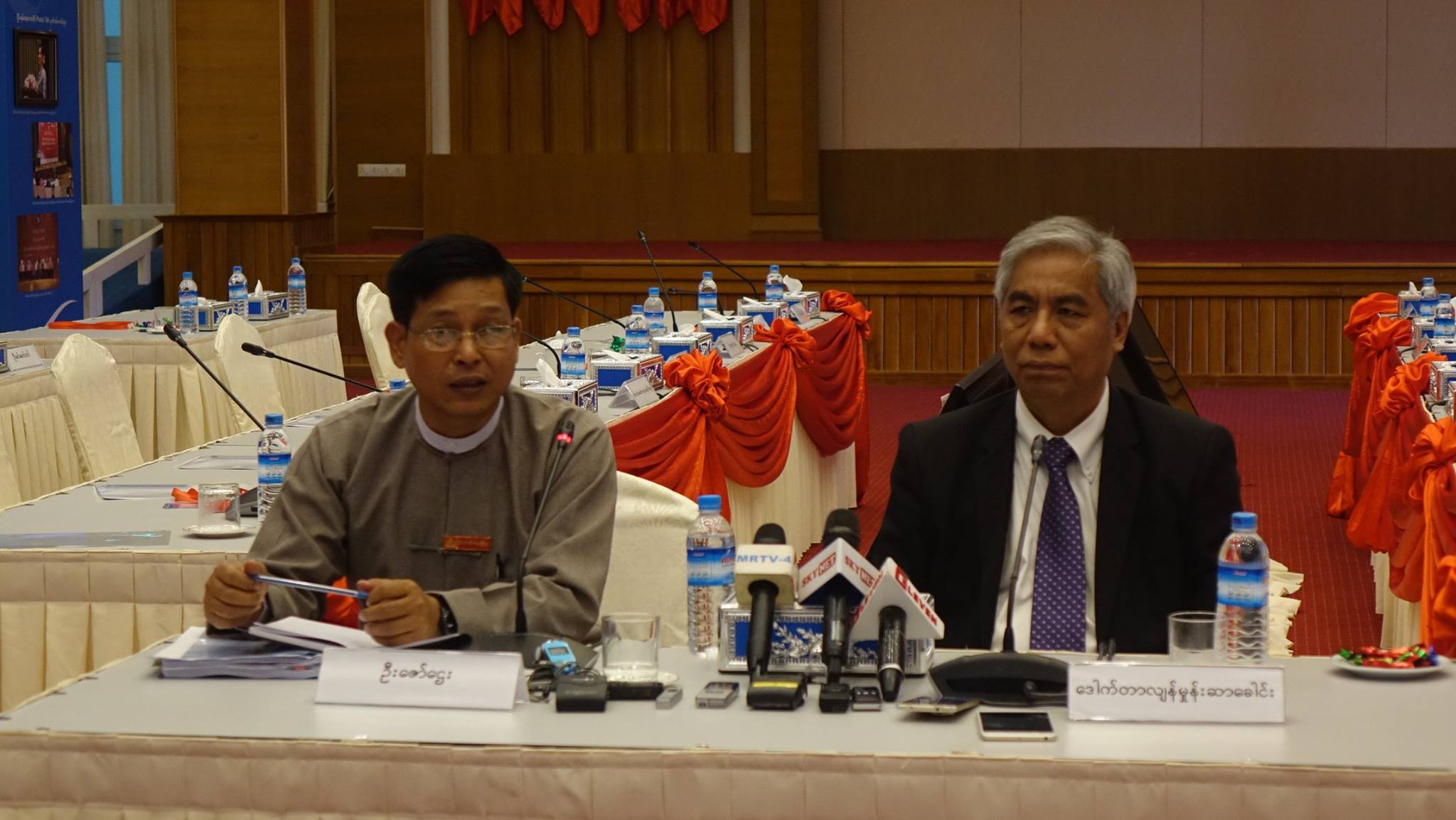Negotiators from the government, military and a bloc of Burma’s non-state armed groups have agreed to convene the third session of the 21st Century Panglong Conference in January 2018.
The decision was taken at a Joint Implementation Coordination Meeting (JICM) held Monday in the nation’s capital Naypyidaw.
“The JICM decided that the conference will be held in the final week of January,” Zaw Htay, the director-general of the President’s Office, told reporters at a press conference after Monday’s gathering.
“Normally, we aim to convene two sessions of 21CPC [the 21st Century Panglong Conference] a year. However, depending on the developing situation in the nation, we [are willing to] postpone the conference to a time that fits well with the leaders,” Zaw Htay added.
Lian Hmung Sakhong, a senior leader of the NCA signatory Chin National Front, added, “The 21st Century Panglong Conferences were targeted to convene every six months; twice a year. The [upcoming] conference was not postponed in a negative sense. The two sides negotiated and agreed to postpone the conference in consideration of the best thing for the sake of the nation’s peace process.”
Two iterations of the 21st Century Panglong Conference have been held under the government led by State Counsellor Aung San Suu Kyi; first in August-September 2016 and again in May 2017. Prior to that, the former government held the forerunner to “21CPC,” the Union Peace Conference, in January 2016. The names of the two conferences are now used interchangeably, with 21CPC adopting much of the Union Peace Conference’s organising framework.
That framework — and more specifically whom it will allow to participate in the next 21CPC — will continue to be a critical question in the months leading up to the January conference: Whether or not Burma’s ethnic armed groups are signatory to the Nationwide Ceasefire Agreement serves as the basis for their ability to join the conference as full participants, and most of the country’s largest groups have not yet signed the accord.
There are just eight non-state armed groups that have signed the NCA, with about a dozen more that are not signatories. Suu Kyi’s government has been urging the latter to get on board since it took the reins of Burma’s peace process in April 2016.
[related]
Suu Kyi announced in August 2016 that the Panglong summits would be held every six months, an ambitious goal that has not been met to date, as evidenced by Monday’s announcement of the peace conference’s third iteration coming in late January 2018.
In another development arising from Monday’s JICM, the respective delegations gave their collective nod of approval to allow the Restoration Council of Shan State (RCSS) to hold a Shan ethnic-based national-level political dialogue in Lin Khay, Shan State.
“The RCSS will proceed with holding the national-level political dialogue in Lin Khay town, in Shan State, in January,” Lian Hmung Sakhong told reporters at Monday’s press conference.
The RCSS had previously proposed that the dialogue be held in the Shan State capital Taunggyi, while the Burmese military put forward as a prospective host site Mong Pan, a remote town in the south of the state. With the two parties unable to reconcile their differences, a convening of the RCSS-led national-level political dialogue has been delayed for months, and the impasse was only overcome on Monday after Suu Kyi suggested a third option, Lin Khay.
“As the two sides were at loggerheads regarding the location, the state counsellor suggested considering a third option. It was Lin Khay town, which is a bigger town than Mong Pan. It is neither Taunggyi, Pinlong nor Mong Pan. When the state counsellor suggested Lin Khay, both sides agreed,” said Zaw Htay.
For the Arakan Liberation Party — like the Chin National Front and RCSS, a signatory to the nationwide ceasefire accord — Monday’s JICM was less productive. The group has been seeking to hold its own national-level dialogue in Rakhine State, but the concerned parties remained unable to come to an agreement on location and other details as of the conclusion of Monday’s meeting.



